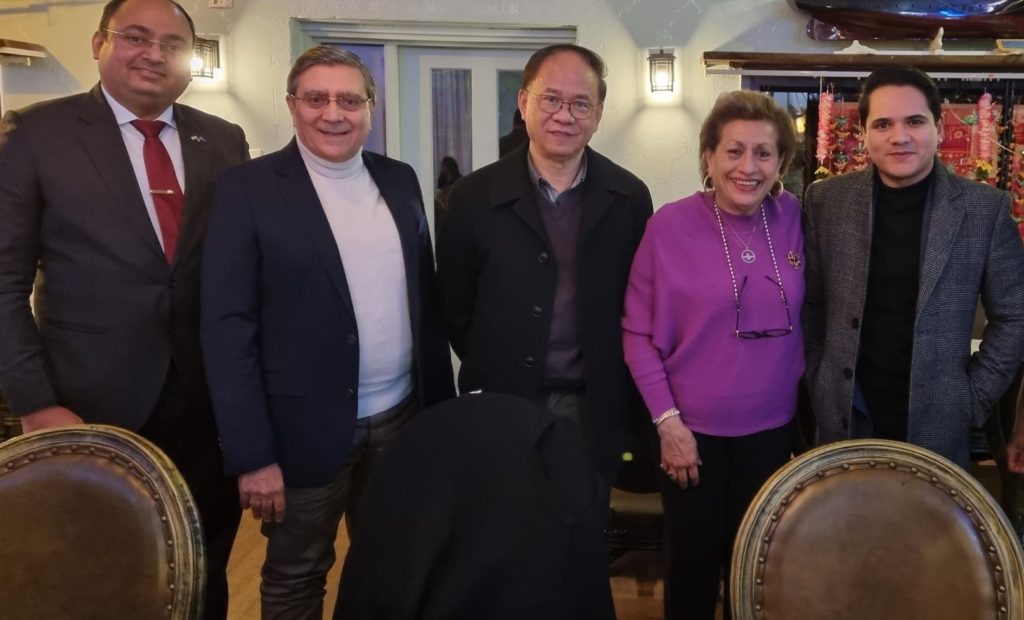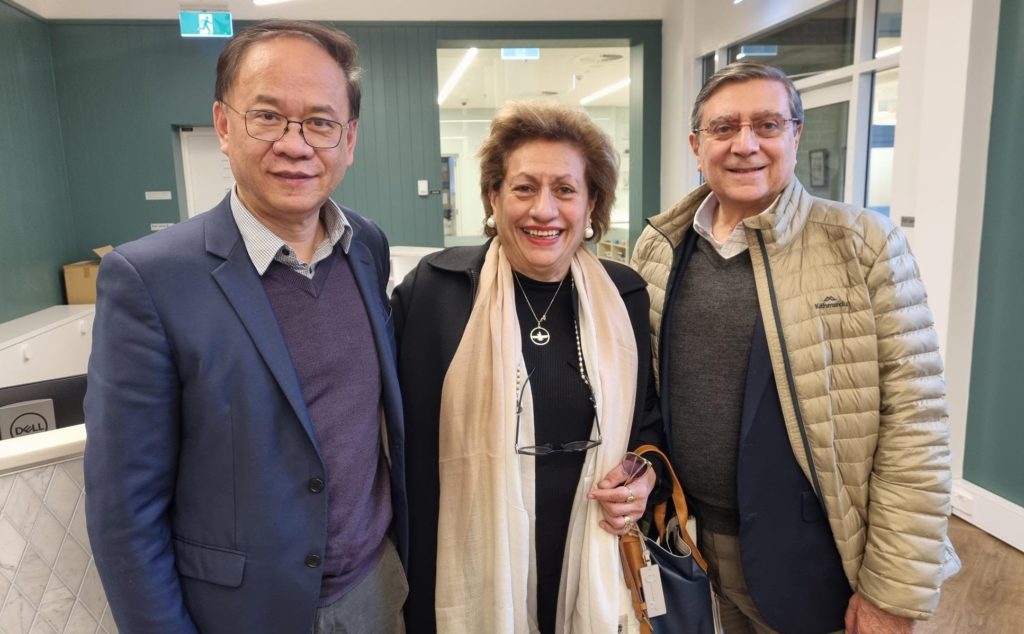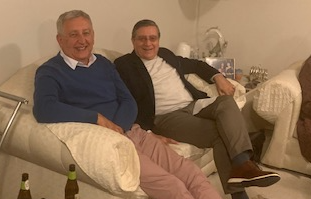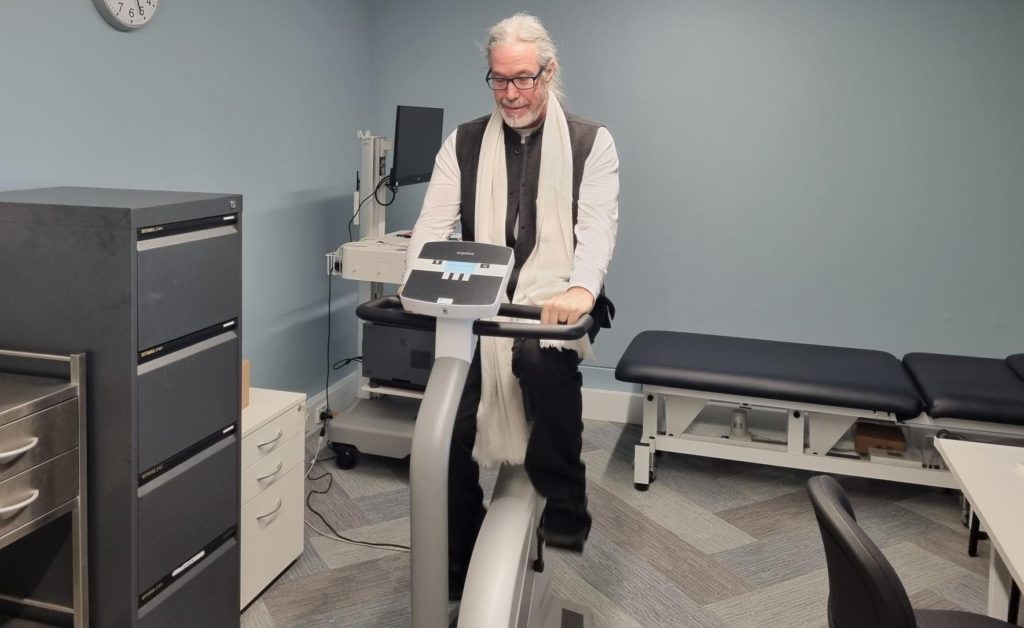Professor Bodeker optimistic about Ayurveda medicines globally accepted

By Kersi Meher-Homji
Ayurveda means life and longevity knowledge. It is an alternative medicine system with historic roots in the Indian sub-continent. Therapies include herbal medicines, special diets, meditation and yoga.
It was interesting meeting and talking with Ayurveda experts Prof Dennis Chang, Director / Professor of Pharmacology, National Institute of Complementary Medicine (NICM) Health Institute, Western Sydney University and Prof Gerry Bodeker, Chair of Ayurveda Advisory Board NICM and Harvard trained Public Health specialist, Oxford University. Bodeker had done his doctorate research at Harvard on Ayurveda and Chinese medicines.
Prof Bodeker’s recently released book Healthy Aging in Asia – Culture, Prevention and Wellness, edited by Goh Cheng Soon and Krishan Kariippanon, throws light on Ayurveda in an interesting way.

It was a pleasure interviewing Prof Bodeker, a gentleman and a scholar. Being a Microbiologist my questions were based mainly on the effects of Ayurveda medicines on bacteria, fungi and viruses. What he told me was indeed revealing. Imagine, copper wires in a water bucket can kill bacteria (E.coli, Shigella, Vibrio cholerae and others) overnight.
He explained, “Further investigation showed that as water was ionized by copper, it became a mild copper solution. The ionized copper changed the pH in buckets containing microbes. It was the acidic pH which killed the pathogens. No poison was involved.”
He explained that copper has antimicrobial properties, meaning it can kill microorganisms like bacteria and viruses. However, the microorganisms have to come in contact with copper in order for it to be killed. This is referred to as ‘contact killing’. It disrupts bacterial cell membranes, destroying the DNA and RNA of the microbe. In short, it interferes with proteins that keep bacterial cells alive.
Ayurvaidya Farida Irani – founder of Subtle Energies Pty Ltd specialising in Holistic sciences/ Ayurveda/ pioneer in Ayurveda aromatherapy/ Ayurveda Advisory Board NICM – was also present at the interview and concurred with this explanation.
Prof Bodeker added that the Indian plant Moringa oleifera has antibacterial and antifungal effects. This original work was done by him in collaboration with Prof Padma Venkat, Dean of Public Health at SRM University of Chennai.
“The importance of Quality Control and Therapeutic Drug Act – especially in India – are very important for the safety of using Ayurveda medicines internationally” he said. Also Quality Control for NICM is helped by the Federal Government. The sophisticated capability of NICM on testing Ayurveda products is vitally important. Their performances are supervised by the Therapeutic Goods Act.”
“How did you get interested in Ayurveda?” I asked.
He replied, “I first learned about Ayurveda in November 1980 at an international meditation congress organised by Maharishi Mahesh Yogi, at which the President of the All India Ayurveda Congress spoke. This was the late Padma Bhushan Rajvaidya Dr Brihaspati Dev Triguna. I was fascinated by what Dr Triguna shared during a series of translated lectures and I wanted to learn more about Ayurveda.
“This learning has continued to the present, more than four decades later. I also attended a Medical Conference in India and worked with World Health Organization for many years.”
Both Professors Chang and Bodeker were excited that the Government of India is taking interest in original research work done at NICM in Sydney on testing the efficacy of Ayurveda medicines. It will take time before Ayurveda will be accepted by majority of us as an alternative medicine but a start has been made, they added.

Professor Emeritus Alan Bensoussan, NICM, University of Western Sydney has also got a very important role to play in the formation of NICM Ayurveda advisory board. The board also has Bharat Mitra Founder of Organic India and Fab India and Chief Mentor of Culture and Wellness Peninsula Hot springs Victoria.

Finally, I asked Prof. Bodeker a question after my own heart; on cricket and health in India! “Formerly from 1950s to 1990s, cricketers from overseas were scared to tour India for the fear of contracting cholera, typhoid or dysentery. But not in the last few decades as cricketers from all countries play IPL (Indian Premier League) matches for over a month every year and remain healthy. Have modern Ayurveda medicines played a role?”
Bodeker replied that it has done so to a large extent. Ayurveda has developed ionized water which destroy hazardous germs.
Later I visited and was highly impressed by the NICM laboratory in Westmead, Sydney where Ayurveda products are tested scientifically under the supervision of Dr Deep Bhuyan using modern and sophisticated techniques.
Short URL: https://indiandownunder.com.au/?p=18134
